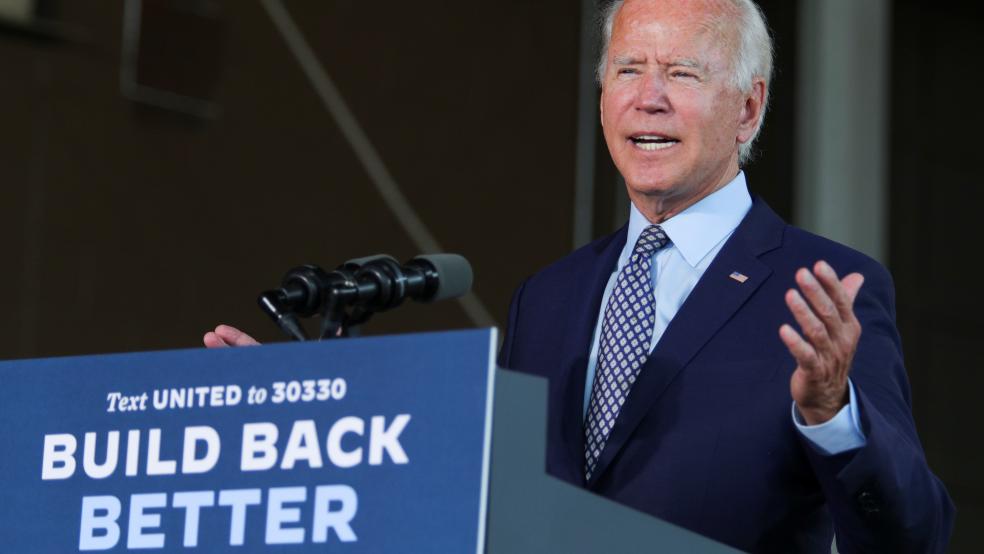Some Democratic economic policy wonks have long believed they made a serious mistake during the Great Recession: The $787 billion stimulus package President Barack Obama signed into law in 2009 just wasn’t big enough relative to the size of the crisis at hand. According to Politico’s Ben White, former Vice President Joe Biden is determined not to make the same mistake twice.
“Should Biden take the White House and get a Democratic Senate,” White said Tuesday, “it will likely all translate into an immediate push to roll back President Donald Trump’s corporate tax cuts, slap significantly higher taxes on wealthy Americans and push through a multitrillion-dollar stimulus spending package aimed at fighting the Covid-19 virus, sending cash directly into people’s pockets, renewing enhanced unemployment benefits, rescuing struggling state budgets and investing in new infrastructure projects.”
One reason for Biden’s change in perspective, White says, is the influence of a team of economic advisers — including Sen. Elizabeth Warren (D-MA) and economists Heather Boushey, Raj Chetty and Jared Bernstein — who come from the left wing of the Democratic Party, and who are less concerned with “appeasing budget hawks and Wall Street bankers who tend to worry about soaring deficits.” Additionally, some of the key centrist advisers from the Obama administration Biden has been consulting, such as former Treasury Secretary Larry Summers, have moved left in recent years, adding weight to more progressive policy proposals.
A major concern for the Biden team is the possibility that, without substantial further stimulus, the economy will get stuck in low gear and perform below potential for years. Another worry is that without more aid, state and local governments will serve as a drag, much as they did after the Great Recession, as they maintain austerity budgets that hinder the recovery.
How big is big? Biden hasn’t released a detailed proposal for a stimulus package, saying much depends on what kind of deal Congress can make in the coming weeks and what happens with the economy between now and January. But he said earlier this year that the stimulus should be “a hell of a lot bigger” than the $2 trillion Cares Act Congress passed in March. Separately, Biden has proposed more than $3 trillion in new spending on a variety of programs, including clean energy, infrastructure and education, and those could conceivably be folded into an eventual stimulus package.
Debt less of a concern. The Obama administration’s undersized stimulus package was driven in part by concerns about running up the national debt, and by fears about sparking a political war with conservatives over spending levels. But a growing chorus of debt skeptics has pushed back against those centrist concerns, and they appear to have Biden’s ear, at least at the moment.
“The idea that the U.S. faces any major risk from our debt burden is simply wrong,” Dean Baker of the progressive Center for Economic Policy and Research told White. “If for some reason private investors became more reluctant to hold U.S. debt, the Fed could simply step in and buy it. If the U.S. is struggling to recover from this recession, there is no reason to be concerned about running large deficits.”




